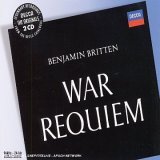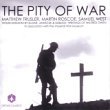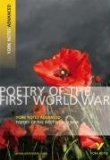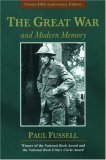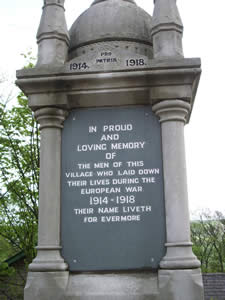
Memorial to the 'European War' in
Broadbottom, a small mill town in 1914.
See the pages on researching war
memorials and on memorial inscriptions
More about Broadbottom in the war here
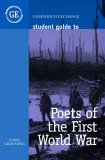
Poets of the First World
War: see below
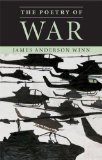
The Poetry of War
see below
The First World War in Literature
The resources on these pages are intended to help teachers and students, particularly at AS and A Level and especially for the AQA Specification A English Literature AS Level War option. The lists incorporate recommendations from teachers, suggestions from AQA support meetings and my own research. Use the menu on the left to help you find your way around.
Other pages to visit on this site are:
- Poems of the First World War: a small selection of poems and context notes
- Remembrance services: why are certain passages so often used?
- Tracing the names on a war memorial: what can we find out about those named on a local memorial?
Useful web sites
- The Accrington Pals:
- The Accrington Pals website has extensive information about the 11th (Service) Battalion (Accrington) East Lancashire Regiment, better known as the Accrington Pals: "probably the best remembered of the battalions raised in the early months of the First World War in response to Kitchener's call for a volunteer army".
- CLEO (Cumbria Lancashire Education Online) has an excellent unit on the Accrington Pals in its Key Stage 3 History section - although aimed at the 11-16 age range it has much relevant material, including sound files of interviews with surviving Pals describing their own experiences. Hear the old soldier recall how, as a young lad, he spent a night amongst the dead and terrified the stretcher bearers in the morning!
- Mike Harding wrote a song about the Pals for his album Bomber's Moon:
1916 came the call:
We need more lads to battle with the Hun... - Also see Peter Whelan's play The Accrington Pals
- BBC World War One site: rich resources include maps, films, Wilfred Owen Audio Gallery and extracts from soldiers' letters and diaries.
- Converse First World War activities: a series of interactive resources on the War, including exploring Owen's drafts for 'Dulce et Decorum est' and some fascinating contemporary material. Very good for students to explore.
- First World War.com: an extensive site, mainly devoted to political and military history but also including an interesting section on prose and poetry. The complete text of the 1917 collection of wartime poetry The Muse in Arms, 'a collection of war poems, for the most part written in the field of action, by seamen, soldiers, and flying men who are serving, or have served, in the Great War,' ranges from Brooke and Sassoon to many now forgotten.
 Oxford University First World War site, an excellent resource newly overhauled and expanded, has seminars on First World War poetry, including access to Owen's manuscripts, contemporary photographs, etc.
Oxford University First World War site, an excellent resource newly overhauled and expanded, has seminars on First World War poetry, including access to Owen's manuscripts, contemporary photographs, etc.
- Lost Poets of the Great War by Harry Rusche of Emory University, Atlanta
- Steve Brown - a teacher's own site, with useful extracts and links (though some materials seemed to be missing when last visited).
- English Online has useful links from the free samples of the Wilfred Owen unit: subscribers have access to an excellent series of interactive explorations of eight poems.
- Imperial War Museum, which includes the newly-opened Imperial War Museum North.
- National Archives First World War site: lots of documentary material, including archive photographs, propaganda material, posters, information on pacificists, etc.
- World War I - Trenches on the Web: an Internet History of The Great War from The Great War Society
- Cecil Slack: Letters from The Great War - a large collection of letters written and received by Cecil Slack during the Great War. This teaching resource from East Riding of Yorkshire Council (created mainly by Andrew Moore) has materials for Key Stage 3 but the documents should provide plenty of ideas for more advanced work too.
- Carols, pudding and football: a letter from the trenches on Christmas day in 1914 was bought in November 2006 by the singer Chris de Burgh. The Guardian article includes the unknown soldier's letter to his mother.
- The Somme
:
- the Battle of the Somme: this major site from the Imperial War Museum about the Battle offers access to artefacts from its collection and recordings of original testimony.
- Revisiting the Somme: 'Its 90th anniversary is a chance to look at the lessons of this devastating battle' - useful Guardian page about the battle, with links to many other sites. Valuable background material, including notes on changing attitudes toward the conduct of the War.
- 90 years on, the Somme remembered: Max Hastings in The Guardian, 1 July 2006.
- 'We go tomorrow': Shrapnel still glints in the clay and skeletal remains go on being unearthed. On the 90th anniversary of the battle of the Somme, Mark Bostridge revisits the personal stories of troops on the front line - The Guardian, 1 July 2006.
- Twenty thousand reasons to remember: Tim Gardham looks at three books which examine the unprecedented carnage and the memorials raised to the men who fell that day - The Observer, 2 July 2006.
- Night Waves: Philip Dodd and guests mark the anniversary of the most costly land battle in British history, the Battle of the Somme. There are songs and reports from some of the battle sites. BBC Radio 3, 30 June 2006 - listen online for a limited period.
CD-ROM
- Over the Nightmare Ground: British Poetry from two World Wars is well worth investigating. It can be obtained from Headstrong or the NATE bookshop - currently on special offer!
The Headstrong website also has some useful links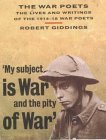
Books
Historical and literary background
- Adrian Barlow: The Great War in British Literature, CUP
- Bernard Bergonzi: Heroes' Twilight
. The 1996 revision takes account of developments since the book was first written: it remains a valuable survey of poetry and prose writing of the War.
- The Cambridge Companion to the Literature of the First World War
(Cambridge Companions to Literature). This is an excellent modern survey, though probably more suitable for teachers than students. You can read the introduction to this book on the CUP site.
- Modris Eksteins: Rites of Spring: The Great War and the Birth of the Modern Age
- a stimulating account of the effect of the Great War on modern thought and feeling. May be hard to find but worth seeking out; look for other editions if this link draws a blank.
- Paul Fussell: The Great War and Modern Memory, OUP : classic account of the continuing cultural importance of the war. Strongly recommended.
- Robert Giddings: The War Poets: The Lives and Writings of the 1914-18 War Poets
, Bloomsbury (with useful historical background)
- John Greening: Student Guide to Poets of the First World War
: this volume from Greenwich Exchange is an excellent introduction to ten significant poets and includes a useful chapter on other key poems. Teachers as well as students should find it invaluable, prompting further study of the poetry. Find out more about the author on his website.
- Samuel Hynes: A War Imagined: First World War and English Culture
- fascinating and detailed account of the impact of the war on all aspects of culture including literature. Worth buying for the library.
- Lyn Macdonald: Somme
, Penguin
- James Anderson Winn: The Poetry of War: 'The war poets I most admire enlist the forces of memory, meter, and irony to help us confront, in all its contradictory power, the terrible beauty of war,' says Winn in this wide-ranging study of war poetry from Homer to Bruce Springsteen. Read the full review by Tom Rank in Issue 12 of English Drama Media from NATE in October 2008.
- Jay Winter: Sites of Memory, Sites of Mourning: The Great War in European Cultural History
, Cambridge - explores how the war was remembered, ranging widely to include examples from France and Germany as English-speaking countries, but emphasises the continuation of more traditional forms of mourning.
Fiction
- Pat Barker: Regeneration
, The Eye in the Door
and The Ghost Road
- also available in one volume as The Regeneration Trilogy
.
- Sebastian Barry: A Long Long Way
- evokes the camaraderie and humour of Willie and his regiment, the Royal Dublin Fusiliers, but also the cruelty and sadness of war, and the divided loyalties that many Irish soldiers felt. This novel, published in 2005 and shortlisted for the Man Booker Prize, has been suggested by a visitor and was warmly reviewed in The Guardian. You can find out more about Sebastian Barry the Guardian article 'Past imperfect'.
- William Boyd: An Ice-cream War
- Ben Elton: The First Casualty
: his historical thriller.
- Ernest Hemingway: A Farewell to Arms
(1929) - a love story in which the author draws on his own experience of the First World War, when he volunteered for ambulance service in Italy.
- Susan Hill: Strange Meeting
- Sebastian Faulks: Birdsong
; also filmed.
- Sebastian Faulks (editor): The Vintage Book of War Stories
- a collection of 'the best fiction about war in the 20th century.... from the First World War to the Gulf War'.
- Frederic Manning: Her Privates We
- 1929 novel by an Australian who fought as a private in the War. Ernest Hemingway called it 'the finest and noblest book of men in war'.
- Erich Remarque: All Quiet on the Western Front (novel, 1929, made into a film in 1930) and again (in colour, but less well-received) in 1979
.
- Helen Zenna Smith: Not So Quiet: Stepdaughters of War, The Feminist Press. This novel from 1930, based on the wartime diary of a VAD, was written in response to All Quiet on the Western Front and is similarly moving and, in the end, desolate.

- The Good Soldier Svejk: And His Fortunes in the World War
(Penguin Classics): classic novel of the Czech character and the preposterous nature of war.
- Kressman Taylor: Address Unknown
: a brief novella in the form of letters between an American Jew and his friend in Germany during the early 1930s. Kurt Vonnegut wrote: "It is to our part in World War Two what Uncle Tom's Cabin was to the Civil War."
- Nick Whitby: To the Green Fields and Beyond
- lives of men in the Tank Corps in 1916.
- Tobias Wolff: In Pharaoh's Army: Memories of a Lost War
- a memoir of the Vietnam War.

Non-fiction
- Joyce Marlow (ed): The Virago Book of Women and the Great War
- Edmund Blunden: Undertones of War: Blunden's memoir from 1928 includes a useful supplement of his own 'Poetical Interpretations and Variations'
- Vera Britain: Testament of Youth: An Autobiographical Study of the Years 1900-1925
, Penguin
- Alan Bishop and Mark Bostridge (eds): Letters from a Lost Generation
: First World War Letters of Vera Brittain and Four Friends, Little, Brown & Company
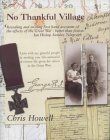
- Cardinal, Goldman, Hattaway (editors): Women's Writing on the First World War
, Oxford University Press
- Howell: No Thankful Village: The impact of the Great War on a group of Somerset villages - highly recommended, this is available direct from Fickle Hill, Chapel Cottage, Parsonage Lane, Chilcompton, Bath BA3 4HD for the special price of £20 post free (in the UK). The book is also available from Amazon
but in this case it's better (and cheaper) to buy direct from the author.
- "A small masterpiece", says Robert McCrum in his enthusiastic review in The Observer. For more comments by readers, from the Sunday Telegraph ("Revealing and moving first hand accounts of the effects of the Great War - better than fiction") to the former Archbishop of Canterbury ("a wonderfully moving collection of memories"), see the Fickle Hill site.
- The book is the basis of a three-part ITV West series Till the Boys Come Home in October 2005, from Wild Fire Productions Ltd, 85 Effingham Road, Bristol, BS6 5AY ? 0117 914 7826, wild.fire@blueyonder.co.uk. Fickle Hill hopes to be able to distribute a video about the book as well - contact them for details.
- Steve Humphries and Richard van Emden: All Quiet on the Home Front: An Oral History of Life in Britain During the First World War. 'A classic piece of oral history bulging with facts that you kept feeling you should have known or guessed already - but which came as revelations all the same' - Daily Telegraph
- Sassoon: Memoirs of a Fox-hunting Man
, Memoirs of an Infantry Officer
and Sherston's Progress
- also available in one volume as The Complete Memoirs of George Sherston
, Faber and Faber
- Graves: Goodbye to All That (1929)
- Max Arthur (Editor): Forgotten Voices of the Great War
: A New History of WWI in the Words of the Men and Women Who Were There
Poetry
See also the page on Poems of the First World War: a selection of poems and context notes.
- Wilfred Owen's poems and letters: see introductions to editions of his poems, such as the War Poems of Wilfred Owen
edited by Jon Stallworthy. See also the CD set including readings by Sam West called The Pity of War, below.
- Andrew Motion (ed): First World War Poems
, Faber - the Poet Laureate's selection from 2003
- Kenneth Baker (ed): The Faber Book of War Poetry
- Jon Silkin (ed): Penguin Book of First World War Poetry
- Robert Giddings: The War Poets: The Lives and Writings of the 1914-18 War Poets
, Bloomsbury (with useful historical background)
- Christopher Martin (ed): War Poems
, Collins Educational - a Student's Book and Teaching Resources pack are also available from Collins.
- Brian Gardner (ed): Up the Line to Death: War Poets, 1914-18
, Methuen
- Dominic Hibberd and John Onions (ed): The Winter of the World: Poems of the Great War
- the chronological arrangement means that the reader 'moves from summery hope to mud-bound despair'.
- Tom Rank: Poetry of the First World War
: this volume in the York Notes Advanced series is based on the wide-ranging selection in Jon Stallworthy's Oxford Book of War Poetry
, although many of the poems appear in other selections. It includes extensive background material.
- Catherine W. Reilly (ed): Scars Upon My Heart
: Women's Poetry and Verse of the First World War, Virago (new edition)
- Jon Stallworthy (ed): The Oxford Book of War Poetry
, OUP
- Martin Stephen (ed): Never Such Innocence: Poems of the First World War
, Everyman
- Jean Moorcroft Wilson: Isaac Rosenberg: The Making Of A Great War Poet
, Weidenfeld & Nicolson - new biography for 2008.
Plays

- R C Sherriff: Journey's End
(Penguin Modern Classics edition - also available in an educational edition from Heinemann
)
- Littlewood/Theatre Workshop: Oh! What a Lovely War (1967); the film version
is now available on DVD and you can also buy a CD of the soundtrack
. See below for more on music
- Frank McGuiness: Observe the Sons of Ulster Marching Towards the Somme
, Faber
- Peter Whelan: The Accrington Pals
, Samuel French. Find out more about the history from the Accrington Pals websites listed above.
- Stephen MacDonald: Not About Heroes
, Samuel French - a dramatisation of the meeting of Sassoon and Wilfred Owen at the Craiglockhart Hospital.
- Somerset Maugham: For Services Rendered
- G B Shaw: Heartbreak House
, Penguin Classics
Music
- Britten: War Requiem. Benjamin Britten's War Requiem was written for the consecration in 1962 of Coventry's new cathedral, built to replace the building destroyed during by Second World War bombing. It combines the Latin Mass for the Dead with nine poems by Wilfred Owen. The high-profile premier by Britain's leading composer (a lifelong pacifist, who was born the year before the First World War) is claimed to have helped to revive Owen's reputation.
There are several recordings available: a definitive account conducted by the composer, a fine modern one conducted by Richard Hickox
and a 'thrilling account' (in the words of the Penguin Guide to CDs) by Guilini
.
You can find out more about the War Requiem on these pages at Caltech (where you can hear some sound clips) and on the BBC site. - Oh! What a Lovely War
: the soundtrack of this production is available on CD.
- Oh It's a Lovely War: Songs and Sketches of the Great War 1914-1918
includes original wartime recordings of classics such as 'It's a long way to Tipperary', 'Pack up your troubles' and 'Good bye-ee' that feature also in the Littlewood/Theatre Workshop play Oh What a Lovely War!. Some of these songs feature on The Pity of War - below. Find out about other CD41 recordings, including Sassoon and 'The Artists' Rifles' ('Great War poetry and prose read by the authors themselves, with music by composers who served in the conflict') on their website.
- The Pity of War
: a collection of First World War works by Elgar, Janacek, Debussy played by Matthew Trusler and Martin Roscoe, with a second disc of Wilfred Owen letters and poems read by Samuel West, interspersed with wartime songs. Produced in association with the Imperial War Museum by Orchid Classics - their website has a link to a download site as well. I can strongly recommend this and the Daily Telegraph agrees: 'poignant and perceptive of mood... all in all, a powerfully evocative set'. For literature teachers, the second disk alone is worth the price.
Other resources
- Remembrance Day, war memorials, newspaper extracts, etc

- The History Channel
- Imperial War Museum, which includes the newly-opened Imperial War Museum North: in addition to the normal displays, the museums organise events and conferences for students.
- Royal Armouries Museum, Leeds
- Battlefield visits (some firms specialise in this area, such as Galina International School Tours of Chester: telephone 01244 314999)
Relevant films
Trumedia of Oxford are a good source of hard-to-find films and videos for schools - phone/fax: 01865 847837.- The Great War
: televsion documentary from 1964 to commemorate the fiftieth anniversary of the outbreak of the Great War, still 'an epic piece of television' - and covers 7 DVDs (or on VHS tapes). Not cheap!
- All Quiet On The Western Front
: this 1930 black and white version is still very powerful. The 1979 version
was deemed less effective by critics.
- Blackadder: Complete Series 4 (Blackadder Goes Forth)
: Rowan Atkinson's Edmund Blackadder is a Captain in the trenches during World War I. The closing moments of the final episode, as Blackadder and co. finally receive their orders, are handled with sober poignancy and became a frequent fixture in Remembrance Day TV scheduling
- Regeneration
was filmed in 1997.
- Saving Private Ryan
: a Second World War film, notable particularly for the opening scenes on Omaha Beach as the troops face withering enemy fire.
Art
- The Imperial War Museum has works by such important official War Artists as Paul Nash: search the Collections for 'Art' to find details and some of the pictures.
- More suggestions here would be welcomed.
Articles from newspapers, etc
- Entrenched loyalties: While Europeans share memories of the second world war, histories of 1914-18 are strictly divided along national lines. Adam Thorpe visits the battlefields and challenges the myths: The Guardian, 7 May 2005
